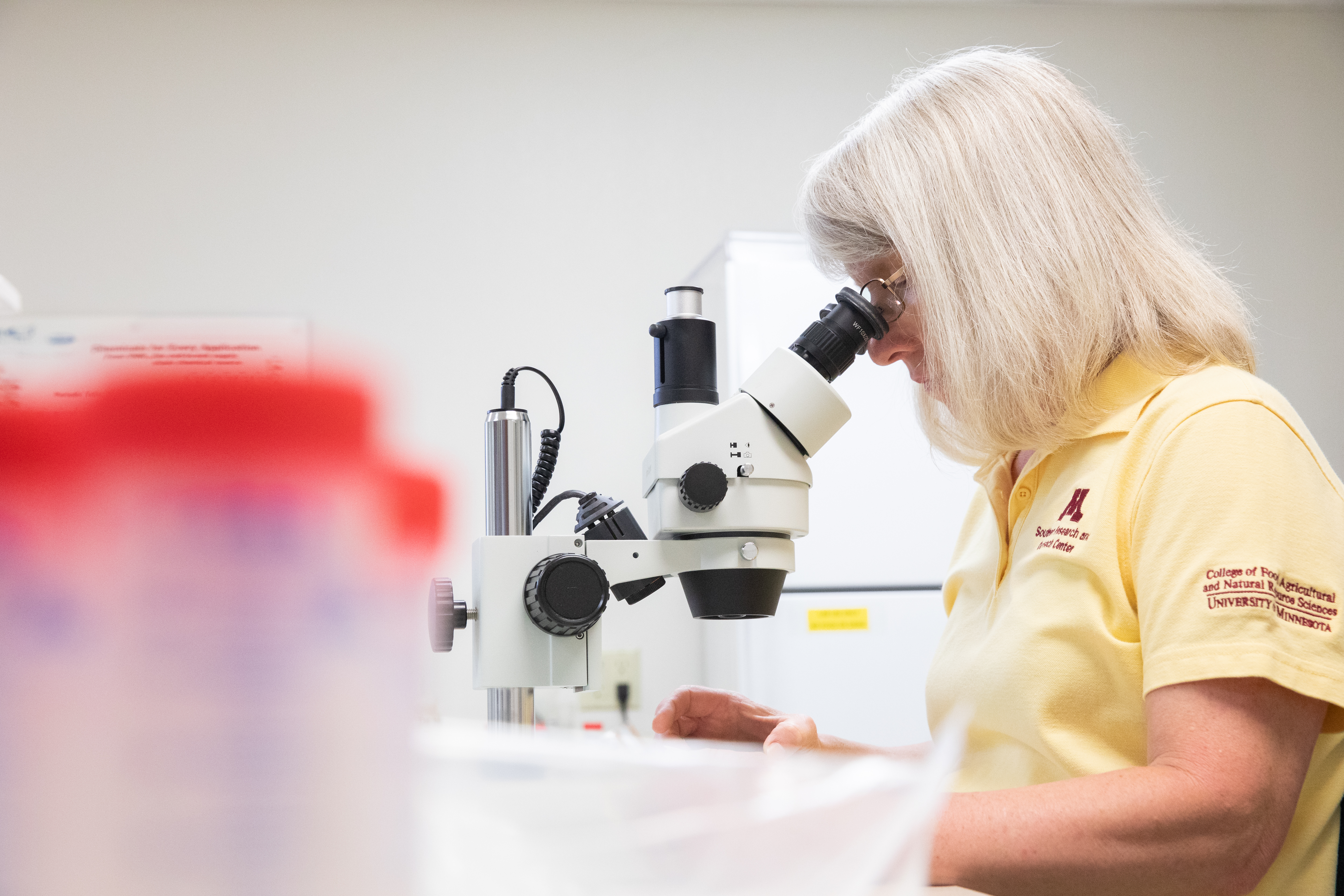Plant pathology research and outreach at the SROC focuses on the biology, ecology, and management of plant-parasitic nematodes, with emphasis on the soybean cyst nematode (SCN).
Nematodes, a group of organisms, are the most abundant among the multicellular animals on earth. While many nematodes are beneficial, some are serious threats to agricultural crops that cause millions of dollars in crop damage.
Our overall goals are to develop better management practices and minimize yield loss caused by plant-parasitic nematodes. Effective management of plant-parasitic nematodes provides economic and environmental benefits to producers in Minnesota and throughout the world, helps improve the sustainability of agriculture, and allows producers to meet the increasing demands for food, fiber, and renewable energy.
We share our research results and management strategies with producers at grower meetings, field days, field tours, professional training programs, conferences, and workshops. We also provide nematode sample test services to growers in the region.
General nematology research is:
- Screening soybean genotypes to improve resistance or tolerance to nematodes, as well as high agronomic qualities
- Investigating fungal and bacterial antagonists of nematodes and evaluating their influence on the nematode population in natural soil and potential as control agents
- Studying soil microbial communalities associated with nematodes and crop yields
- Studying nematode communities associated with soil health in organic and conventional farming systems
- Designing practicable and beneficial crop sequences for management of nematodes based on cropping systems in the region
Soybean Cyst Nematode Research
The soybean cyst nematode (SCN)—a small plant-parasitic roundworm that attacks the roots of soybeans—is the most destructive pest of soybeans in Minnesota and most soybean-producing regions in the world. Our research focuses on the biology and management of the soybean cyst nematode. We use our research to develop better management strategies that minimize yield loss caused by SCN.
A current collaborative research project examines the genetic, functional, and taxonomic diversity of fungi associated with the soybean cyst nematode in Midwest soybean-corn production systems. The goal is to characterize groups of fungi under different types of crop rotation systems and to investigate their roles in controlling SCN populations.
Additional SCN research projects involve:
- The identification of SCN-resistant and tolerant genes and soybean lines
- Determining life cycle, population dynamics and race composition of SCN in Minnesota
- Optimizing crop rotation schemes for SCN management; studying biological control of SCN
- Evaluating commercial soybean cultivars for SCN-resistance and yield potential
- Evaluating commercial chemical and biological nematicides for the control of SCN
- Studying tillage and soil fertility effects on soybean cyst nematodes



